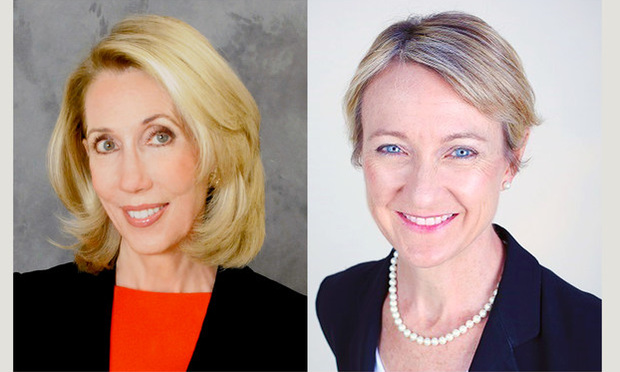Two veteran in-house counsel, Teri Wood of International Business Machines Corp. in New York and Dale Nelson of Warner Brothers Entertainment Inc. in California, recently left their respective companies to go into private practice.
Wood this month joined Jackson Lewis, a labor and employment law firm, as of counsel. Previously she spent 23 years at Armonk, New York-based IBM, primarily as associate general counsel overseeing global labor and employment matters. Prior to that she spent 15 years at American Express Co., where she was managing counsel in charge of employment law matters. She also spent about a year as an administrative law judge for the U.S. Equal Employment Opportunity Commission, and a year as an associate at Stroock & Stroock & Lavan.
This content has been archived. It is available through our partners, LexisNexis® and Bloomberg Law.
To view this content, please continue to their sites.
Not a Lexis Subscriber?
Subscribe Now
Not a Bloomberg Law Subscriber?
Subscribe Now
LexisNexis® and Bloomberg Law are third party online distributors of the broad collection of current and archived versions of ALM's legal news publications. LexisNexis® and Bloomberg Law customers are able to access and use ALM's content, including content from the National Law Journal, The American Lawyer, Legaltech News, The New York Law Journal, and Corporate Counsel, as well as other sources of legal information.
For questions call 1-877-256-2472 or contact us at [email protected]

 Teri Wood, counsel, left, with Jackson Lewis and Dale Nelson, right, of Donaldson + Callif.
Teri Wood, counsel, left, with Jackson Lewis and Dale Nelson, right, of Donaldson + Callif.








